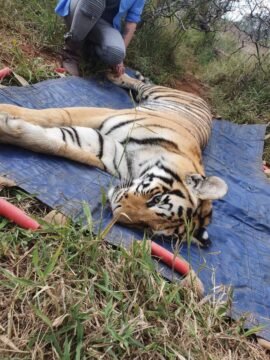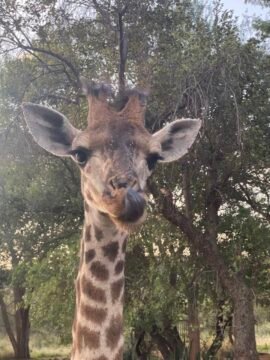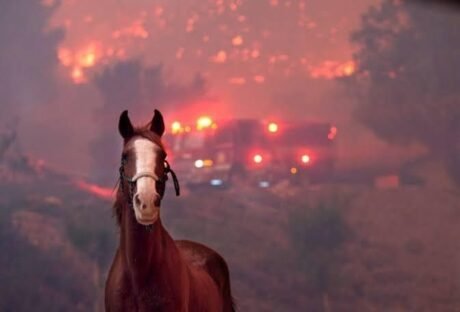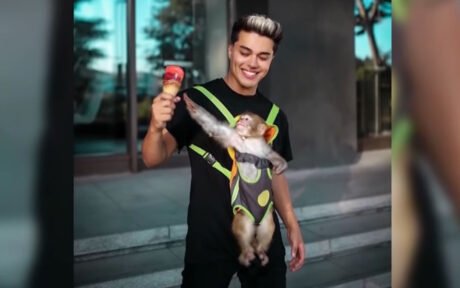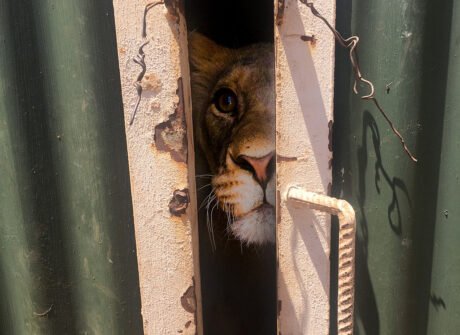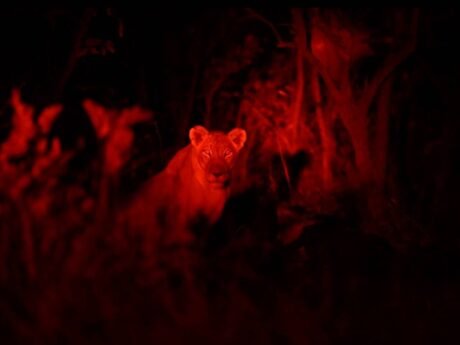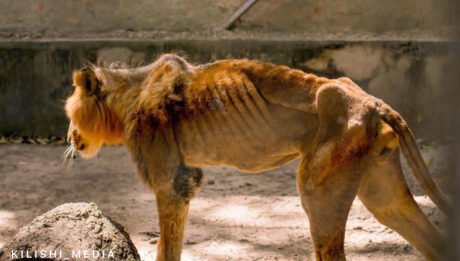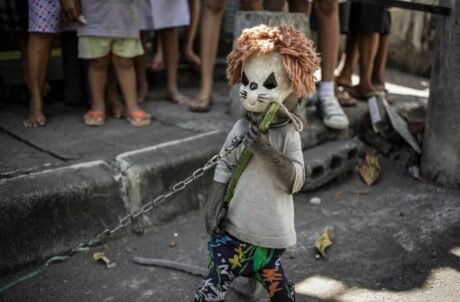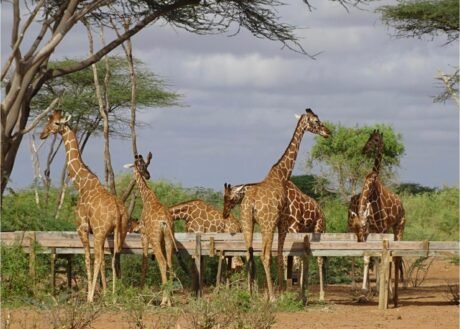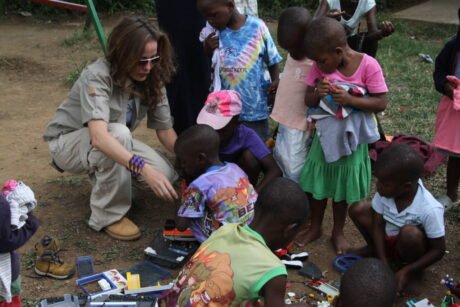In Wild at Life we carry out projects in the following areas of activity:
Projects and activities
Ongoing project
South Africa
A rhinoceros is a large herbivorous mammal known for its thick skin and one or more horns on its snout. There are five species: Black, White, Indian, Javan, and Sumatran.
Ongoing project
South Africa
The cruel canned hunting industry in South Africa isn’t just limited to lions – tigers are also victims. With a price tag of $35,000 to $40,000 per animal, these majestic creatures are highly sought after. Since tigers are not native
Ongoing project
Bela Bela Sanctuary, South Africa
On March 2023, the Wild at Life e.V. team was notified of a young giraffe lying on his motionless mother. Upon arrival, the team learnt that the mother giraffe had been shot several days prior and the baby giraffe remained
Ongoing project
Nigeria
Bandits, on the other hand, are involved in kidnappings and cattle rustling in the northwest region, while separatist groups are agitating for independence in the southeast region. The conflict has resulted in widespread violence, with communities caught in the crossfire
Ongoing project
Türkiye
Wildfire The unfolding crisis needed critical attention and is rooted in the reality of life on a warming planet. Greece and Turkey are home to species that don’t live anywhere else on our planet. Roughly a fifth of Greece’s 36,000
Accomplished project
Istanbul, Türkiye
Content creator Meriç Izgi illegally bought three primates and pretended that they were the same animals. People thought they look cute but the truth was hidden from his Youtube, TikTok, and Instagram pages. After we have confiscated the primates, he
Ongoing project
South Africa
Mission One Canned hunting is a fast-growing business in South Africa, where thousands of lions are bred in more than 160 farms to be shot by wealthy foreign trophy hunters. More captive lions (around 7,000) are now in the country
Ongoing project
Matusadona National Park & Chizarira National Park, Zimbabwe
Collaring also helps reduce human-wildlife conflict by enabling conservationists to track lion movements and alert nearby communities when lions are in the area. This can prevent unintentional human-lion encounters, reducing the risk of conflicts that could result in injury or
Ongoing project
Zambia
With an estimated 415.000 elephants left on the continent, they are regarded as vulnerable, although certain species are being poached towards extinction. Adult elephants have only one predator – humans. We are directly (e.g. shooting, spearing, snaring, poisoning) and indirectly
Ongoing project
Nigeria
The illegal wildlife trade in Nigeria is driven by a combination of demand for traditional medicine and food, as well as high-value species for the international trade in wildlife products. Nigeria’s porous borders and weak law enforcement result in a
Accomplished project
Kaduna, Nigeria
The problem started after a flood ravaged the zoo and affected paddocks. As a consequence of the Covid-19 pandemic and worsening inflation, zoos in Nigeria are struggling to feed the animals due to a lack of funding and paying visitors.
Ongoing project
Jakarta, Indonesia
The goal of this project is to ensure the implementation of enhanced welfare standards for Indonesian primates, with an initial focus on ending the exploitation of long-tailed macaques. Therefore, this project has a major focus on the dancing monkeys. This
Ongoing project
Garissa County, Kenya
Droughts can have devastating impacts on wildlife and agriculture, causing crop failures, food shortages, and increased food prices. They can also lead to water shortages, which can impact wildlife, human health, hygiene, and sanitation. Climate change is a global issue
Ongoing project
Namaacha Valley, Mozambique
Additionally, involving local communities in the conservation and management of wildlife can foster a sense of ownership and responsibility, reducing the likelihood of conflict. Tackling human-wildlife conflict requires a comprehensive approach that considers both the needs of humans and the
Accomplished project
Ziniaré Zoo, Burkina Faso
The extremist groups are mainly active in the northern and eastern regions of the country, where they have carried out attacks on schools, places of worship, and other public places, resulting in the deaths of civilians and security forces. The
Ongoing project
Zimbabwe and Zambia
Human-Wildlife Conflict Mitigation Coexisting can be challenging, and with the human population continuously expanding, conflicts are inevitable. Lions, elephants, and other species are being shot, snared, or worst, poisoned, yet few killings are actually reported to local authorities around Africa.
Ongoing project
Germany
The rehabilitation process can take months or even years, depending on the severity of the animal’s physical and psychological trauma. Once the animals are healthy and strong enough, they are often placed in sanctuaries or adopted into loving homes where
Accomplished project
Aleppo, Syria
The conflict has involved the Syrian government, opposition forces, extremist groups, and foreign militaries. It has resulted in widespread violence, including the use of chemical weapons and the deliberate targeting of civilians. The war has also led to a humanitarian
Accomplished project
Lele (Nepal)
There are several reasons why we fight against vivisection. Firstly, animals should not be subjected to pain, suffering, and death for human benefit, especially when alternative methods exist. Secondly, there are concerns about the validity of animal-based research as it
Ongoing project
USA
The Primate Freedom Project has three components: Education, Advocacy, and Support. The aim of the Primate Freedom Project is to save primates from American labs, as well as to advocate for the cruelty behind vivisections.
No more posts to show
Areas of activity
featured in an award-winning documentary
Stopping The Next Pandemics
a joint production of ARTE France, Georama TV, and NHK Japan
The film shows how illegal wildlife trade poses a serious threat to human health, and highlights the importance of preserving natural ecosystems to prevent future pandemics.
Search for more
Looking for something specific?
Stay informed!
Subscribe to our newsletter to keep up to date with our activities!
By subscribing you consent to our Privacy Policy

